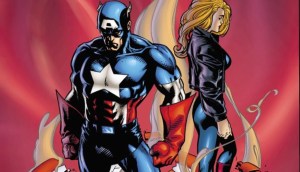The star-spangled man with a plan, Captain America, has always been the embodiment of American ideals: liberty, justice, and the pursuit of a world where all people are free. Steve Rogers, the frail young man from Brooklyn who became a Super-Soldier, fought a war against fascism, believing he was creating a better, freer world. In Captain America #2, written by Chip Zdarsky with art by Valerio Schiti, Steve wakes up decades after WWII in the political climate of 2025. He is a man out of time discovering that the world he fought for has been twisted into something unrecognizable. The America he knew has been replaced by what seems like military police state that watches over its citizens and enemies alike with a pervasive and constant gaze. This new world, born from the very victory he helped secure, forces Captain America to confront a brutal truth: the freedom he fought for came at a cost he never intended to pay.
Videos by ComicBook.com
The words of his current-day Captain America counterpart, Major Colton, echo in his mind, haunting him with the question: “Is this what freedom means now?”
When Walls of Order Replace the Chaos of Freedom
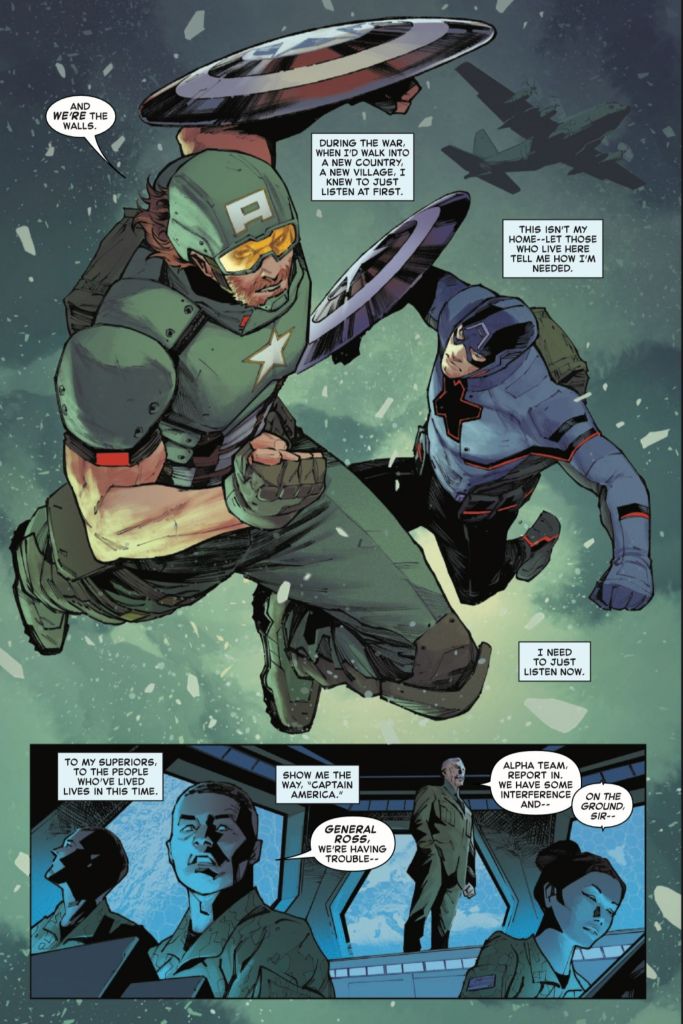
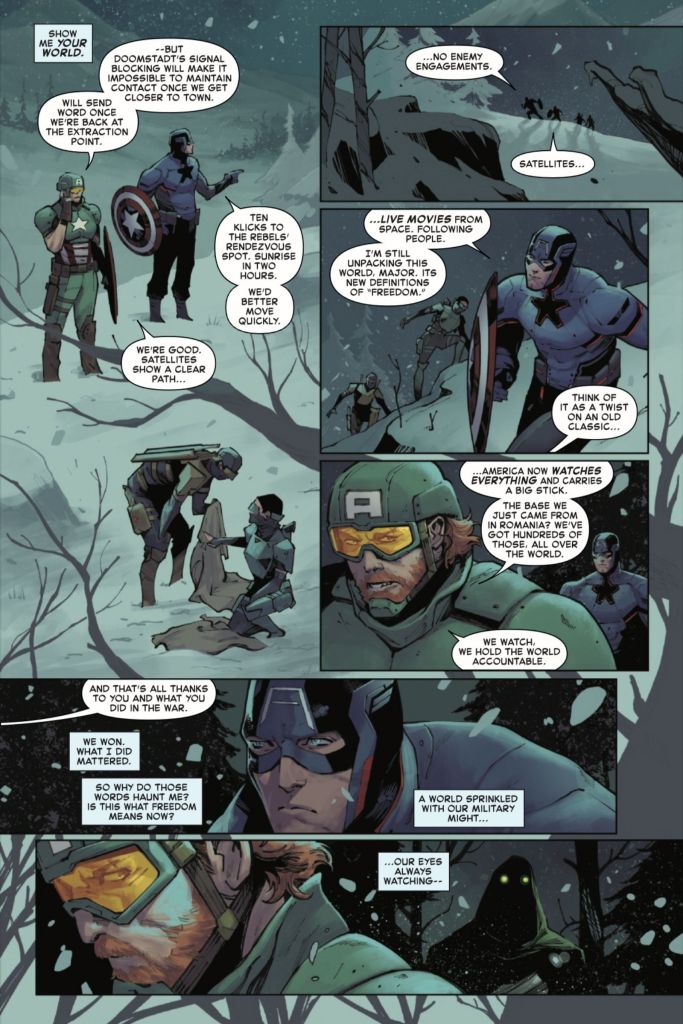
Captain America’s perspective on war and its aftermath is a product of his time. He was a man who went to sleep in a world of chaos, where an enemy was clearly defined and the path to victory was to “take them out.” The mission was simple: defeat the fascists. However, the new world is different. As David Colton explains, the chaos is now “kept in check with walls of order spread throughout the world.” America is no longer just a beacon of hope; it is a global military presence with hundreds of bases all over the world. The generals at command and boots on the ground are the “walls” that hold the world accountable, always watching, always ready to intervene.
This new reality fundamentally clashes with the values Steve Rogers fought for during WWII. He believed in listening to the people on the ground, those who lived in a place he and his team were liberating, to understand how what he could do to help them in a way that did not destablize their entire community. The citizens were not the enemy, despite being under enemy rule; they were simply innocents caught in the crosshairs of an interational conflict that required help from the greatest super power of the time and their greatest hero, Captain Ameria.
Now, American power is sprinkled across the globe, with satellites providing “live movies from space” from Steve’s perspective. The world is under constant surveillance in the name of security and freedom, but it’s a freedom that feels more like control. This is the harsh truth Steve Rogers must accept: the chaos of true freedom has been traded for the illusion of victory and the security of a military-industrial complex.
The Haunting Echoes of a Soldier’s Sacrifice
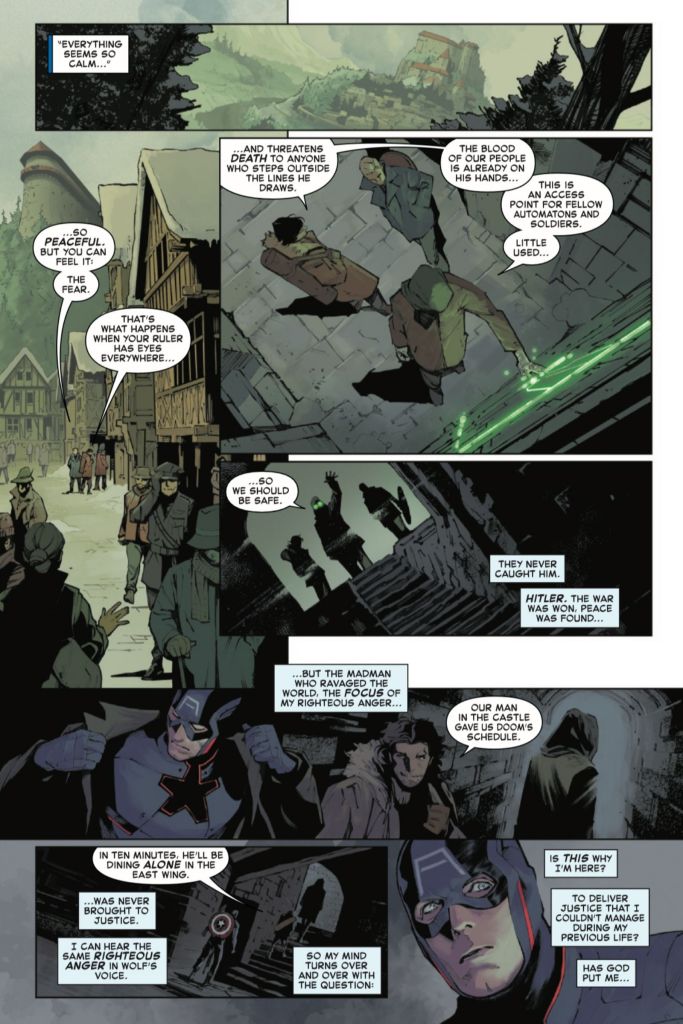
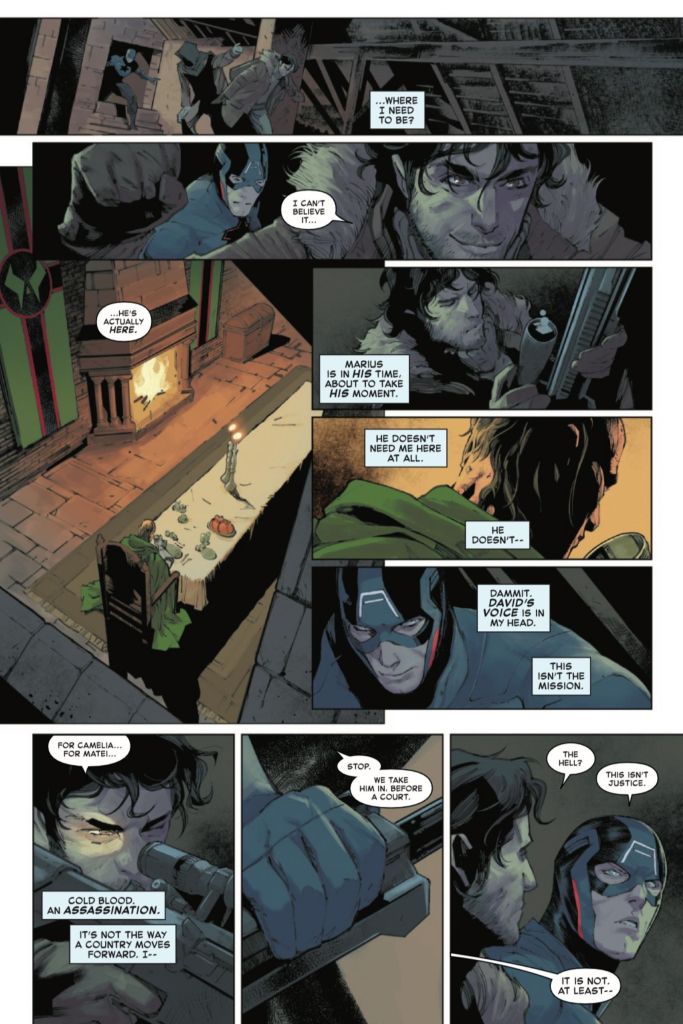
As Captain America reflects on the new world, he’s plagued by a deep sense of unease. He acknowledges that they won the war and that his actions mattered. Yet, he cannot shake the feeling that something is deeply wrong. The words of a soldier named Qasim, who had lived his whole life through civil wars and foreign incursions in the Middle East, resonate with Steve’s own internal conflict. Qasim tells Major Colton that democracy is a “much longer road” than violence. The quick military victory and the “freedom” that followed were just the “illusion of victory.” Now, Steve himself is beginning to see that the world he saved is still steeped in the horrors of war.
Captain America #2 masterfully portrays this internal struggle, asking the reader to question what freedom truly means. When the world is policed by an ever-present military force with eyes in the sky, is it truly free? Or is it simply a new form of control, a different kind of order imposed on the chaos? Captain America is forced to confront the haunting possibility that the world he helped build is not the world he intended or necessarily wanted. The sacrifices he made may have led to a world where “America watches everything and carries a big stick,” according to Colton; a world where the cost of freedom is a constant loss of privacy and autonomy. The soldier from a bygone era must now navigate a new definition of freedom, one that challenges his very core beliefs and leaves him questioning if the victory he achieved was truly worth the price.

